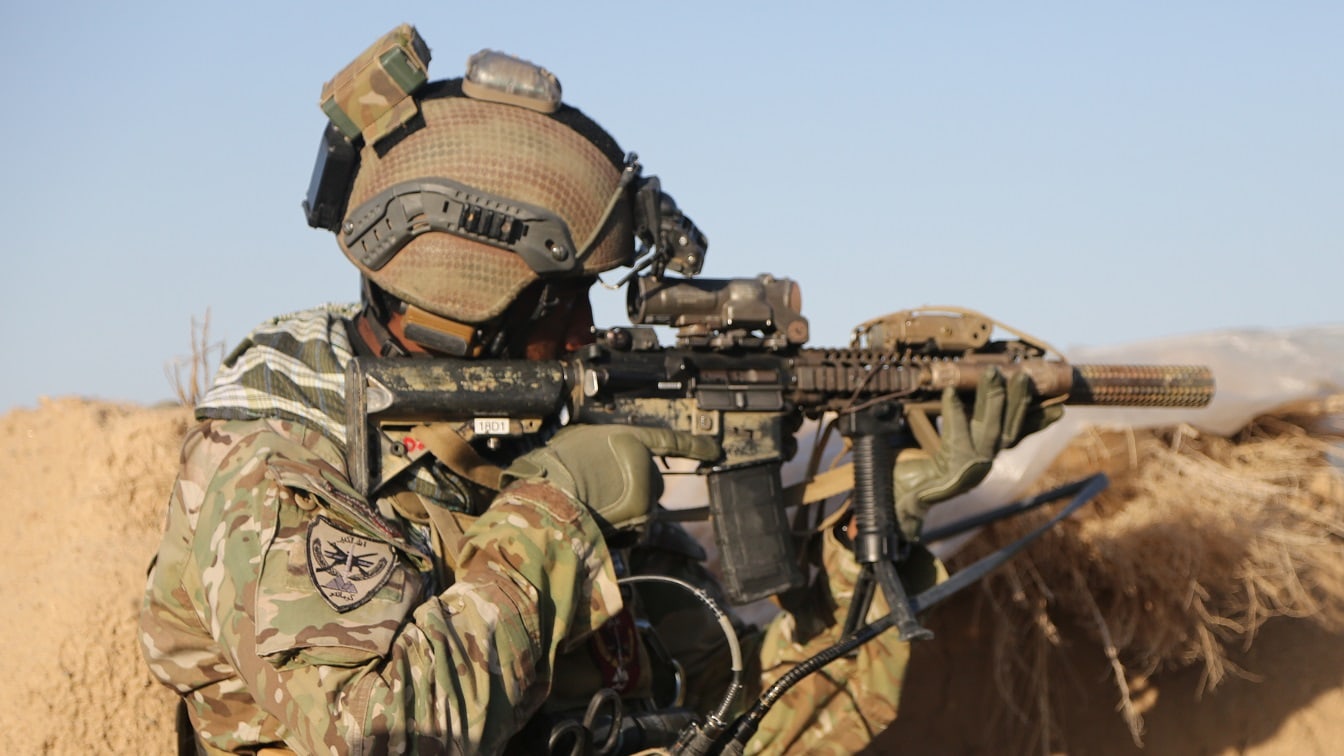Special Operations Command Europe (SOCEUR) Opens FOB in Albania – The Balkans Are Heating Up Again and This Proactive Move is a Smart One.
The U.S. Special Operations Command Europe (SOCEUR) has decided to locate a forward-based SOF headquarters, on a rotational basis, in Albania. The location of the forward HQ in Albania will provide increased interoperability with not just the U.S.’ Albanian partners, but with other NATO allies and provide important access to transportation hubs in the Balkans and greater logistical flexibility.
Major General David H. Tabor, Commander of SOCEUR based in Stuttgart, Germany, said that this move will benefit all of NATO’s partners in the event that tensions in the region flame up. Currently, the U.S. has about 600 troops stationed in Kosovo.
“The ability to rapidly move and train within the Balkans, in close coordination with other allied and partner forces, made Albania the best location for this effort,” Tabor said.
“Albania remains an important NATO Ally and a valued security partner, both regionally and globally,” he added.
Albania’s Prime Minister Edi Rama confirmed that the US would set up the new special forces forward operating base (FOB), calling it “fantastic news.”
In a recorded video statement, Rama said, “It is an expression of a very high credibility and a very close cooperation.”
#BREAKING:
U.S. SOCEUR has made the decision to locate a forward-based SOF headquarters, on a rotational basis, in Albania!
Click here for the full #news release:
🇺🇸: https://t.co/tZEXzILrLC
🇦🇱: https://t.co/476FR2HyTs#SOFinEurope@FA_Shqiptare @MinMbrojtjes @USEmbassyTirana pic.twitter.com/3G27dQvvW6— US Spec Ops Europe (@US_SOCEUR) January 6, 2022
Although it hasn’t been in the news much, the Balkans region has the real potential to reignite into the bloody morass it was a few decades ago. After a bloody and brutal ethnic civil war during the 1990s between Orthodox Serbs, Muslim Bosniaks, and Catholic Croats, the international community stepped in and negotiated the Dayton Accords.
The Dayton Accords put an end to the fighting and split Bosnia into two separate autonomous territories, the Republika Srpska and the Federation dominated by Croats and Bosniaks, which was led by a weak central government.
Milorad Dodik, the leader of Republika Srpska, Bosnia’s Serbian entity, is going to withdraw it from the country’s joint army, intelligence, judicial, and tax administration via a vote in the Republika Srpska parliament. He has clearly stated that he plans to disband all institutions that allow a government and country to function properly.
“I proclaim the end of this,” Dodik said at a news conference after meeting ambassadors from EU countries in Bosnia.
While the news is dominated by the Russian buildup around and the tensions in Ukraine, the Putin government is trying to undermine the West, NATO, and the EU by creating situations to force NATO to respond to situations in many of the former Soviet satellite states and showing their weakness. That will build the Russian presence and cement Moscow’s bid to be the sole power broker in the region. It is a continuation of Moscow’s irregular warfare playbook.
They are openly pushing to destabilize the government of Bosnia Herzegovina by using pro-Russian local media to promote pro-Moscow narratives and political groups hostile to the EU and NATO. Russia is also training a Bosnian Serb paramilitary unit and trying to acquire ownership of strategic industries.
The Russians attempted to start a coup in Montenegro in 2016 and have blocked Kosovo from full international recognition at the UN Security Council. Moscow has already pledged its support for Dodik’s forces if armed conflict breaks out.
“Russia continues to seek to redraw international borders by force. And here, in the Western Balkans, Russia has worked to destabilize the region, undermine your democracies, and divide you from each other and from the rest of Europe.” – then-U.S. Vice President Mike Pence, in a statement in 2017.
By placing the Special Forces FOB in Albania, it allows U.S. and partner Special Forces troops, to be positioned in close proximity to Greece, Kosovo, Montenegro, Bosnia, North Macedonia, as well as Serbia, where the Russian influence is strong. The location also provides NATO troops access to the Adriatic and Ionian Seas.
Albania has been a member of NATO since 2009 and has contributed troops to the U.S. coalition in Afghanistan.
Steve Balestrieri is a 1945 National Security Columnist. He has served as a US Special Forces NCO and Warrant Officer before injuries forced his early separation. In addition to writing for 1945, he covers the NFL for PatsFans.com and his work was regularly featured in the Millbury-Sutton Chronicle and Grafton News newspapers in Massachusetts.

